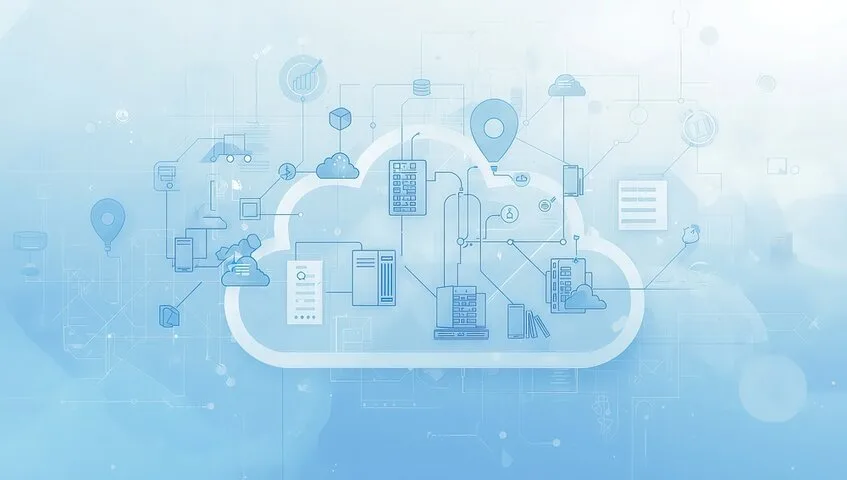EU Data Act: A New Era for Data Control in Europe’s Digital Economy
September 12, 2025 - Today marks a fundamental milestone for the European digital economy: the EU Data Act officially comes into force across all European Union member states, as announced today by the European Commission in an official press release. This regulation represents a crucial piece in the European data governance puzzle, complementing the GDPR and AI Act to build a fairer, more transparent, and competitive digital ecosystem.
What is the EU Data Act and Why It Matters
The EU Data Act is a regulation that establishes new rules for accessing, using, and sharing data generated by Internet of Things (IoT) connected devices. In an era where cars, smartwatches, smart appliances, and industrial machinery continuously generate enormous amounts of data, this regulation returns control of this information to the users who generate it.
The scope of this legislation is vast: it’s estimated that by 2030, there will be over 75 billion IoT devices connected globally. Until now, data generated by these devices often remained locked in manufacturers’ silos, limiting innovation and competition. The EU Data Act breaks down these barriers, democratizing data access and creating new economic opportunities.
The Fundamental Pillars of the Data Act
The regulation is based on five key principles:
1. Design for data sharing: All connected devices sold in the European market must be designed to enable sharing of generated data. This means manufacturers will need to implement technical interfaces that allow secure data extraction.
2. Freedom of choice for repairs and maintenance: Consumers will be able to freely choose more cost-effective repair and maintenance service providers, or even perform interventions themselves, thanks to access to diagnostic data from their devices.
3. Access to industrial data: Companies using connected industrial machinery will have the right to access performance data from their equipment, improving operational efficiency and decision-making processes.
4. Portability between cloud providers: Users will be able to transfer their data between different cloud service providers or use multiple services in parallel, eliminating the vendor lock-in that has characterized the cloud market until now.
5. Fair contracts: Unfair contractual clauses that could prevent data sharing are prohibited, ensuring greater balance in commercial relationships.
Concrete Opportunities for European Citizens
For citizens, the Data Act translates into immediate tangible benefits. Take the example of a modern car: owners will be able to access vehicle diagnostic data and share it with independent repair shops, potentially saving on maintenance costs. Similarly, health data from a smartwatch can be shared with third-party applications for personalized analysis, always respecting privacy guaranteed by GDPR.
In the domestic sector, access to energy consumption data from smart appliances will allow for consumption optimization and reduced utility bills. Small and medium-sized enterprises will be able to develop innovative after-sales services based on data, creating a more dynamic and competitive ecosystem.
Synergies with GDPR and AI Act: An Integrated Regulatory Framework
The EU Data Act doesn’t operate in isolation but integrates harmoniously with GDPR and the AI Act. While GDPR protects personal data and ensures privacy, the Data Act regulates access to and use of non-personal data (and in some cases mixed data). The AI Act, meanwhile, ensures that artificial intelligence systems processing this data do so ethically and securely.
This regulatory triad positions Europe as a global leader in digital governance, creating a model that balances innovation, citizens’ rights, and economic competitiveness. Companies developing AI solutions will now be able to access broader and more diverse datasets while respecting the transparency and accountability principles required by the AI Act.
Implementation and Support
The European Commission has provided concrete tools to facilitate Data Act implementation. A dedicated Data Act Legal Helpdesk will be established to assist companies in applying the new measures. Additionally, standard templates for data sharing and model contractual clauses for cloud services will be published.
It’s important to note that the Data Act includes protection mechanisms for trade secrets, ensuring that data sharing doesn’t compromise companies’ intellectual property. The Commission will provide specific guidelines on when and how these protection mechanisms can be applied.
Conclusions and Future Perspectives
The entry into force of the EU Data Act represents a watershed moment for the European digital economy. By returning data control to users and promoting a more open and competitive market, this regulation has the potential to unlock significant innovations and create economic value estimated in hundreds of billions of euros in the coming years.
For citizens, it means greater control, transparency, and choice. For businesses, especially SMEs and startups, new data-driven business opportunities are opening up. Europe demonstrates once again that it’s possible to build a digital economy that puts people at the center without sacrificing innovation and competitiveness.
Related hashtags
#EUDataAct #DataGovernance #DigitalEconomy #IoT #DataSharing #GDPR #AIAct #EuropeanUnion #DigitalTransformation #DataProtection #CloudComputing #Innovation #TechRegulation #DataSovereignty #DigitalRights #SmartDevices #Industry40 #DataPortability #TechPolicy #DigitalEurope
